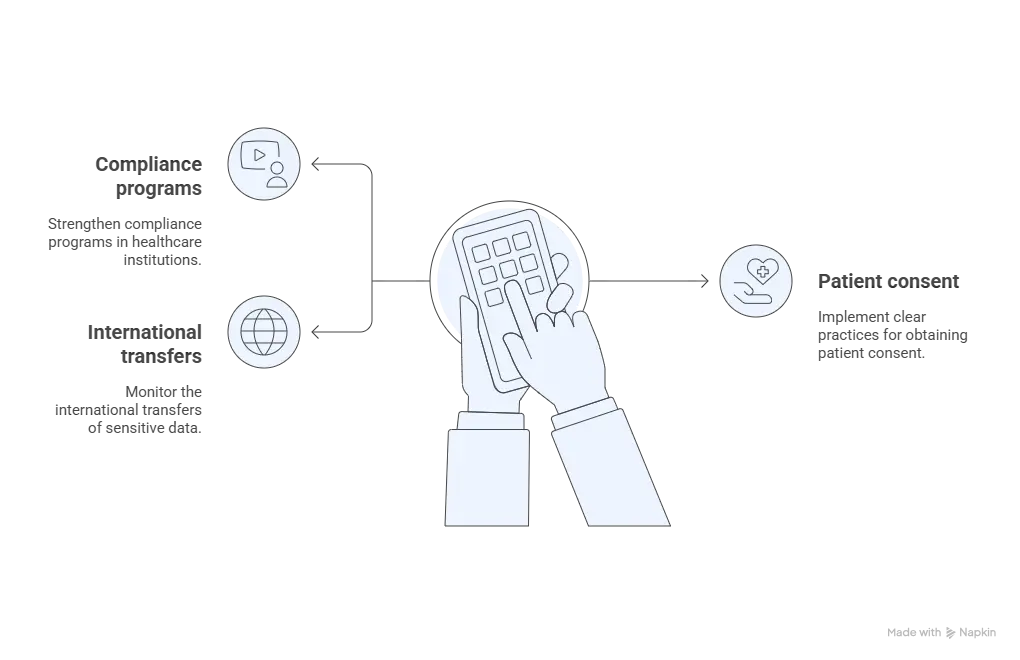Sommaire
Introduction
The term Habeas Data echoes the centuries-old principle of Habeas Corpus, transposing the protection of individual freedoms into the immaterial sphere of personal data. In the age of digital medicine and global circulation of medical information, Habeas Data serves as a true guardian of personal health data, ensuring each individual’s right to access, control, and correct the information relating to their most intimate sphere: their health.
The origins of Habeas Data
Historical context and legal philosophy
Habeas Data emerged in the 20th century in Latin America as a constitutional remedy, allowing individuals to protect themselves against the abusive collection, use, or storage of their data. It enshrines the principle that personal data, like individual liberty, must be protected against arbitrary interference.
Recognition in latin american constitutional systems
Countries such as Brazil, Colombia, and Argentina have incorporated Habeas Data into their constitutions, granting citizens the right to access, rectify, or delete personal data held by public or private entities. This mechanism has served as a model for broader debates on digital sovereignty.
Definition of Habeas Data and health data
What Habeas Data covers
Habeas Data guarantees every individual the right to consult personal data held by third parties and to request its rectification or deletion if inaccurate or unlawfully processed. It is a procedural right that enshrines the principle of informational self-determination.
Clarifying the notion of health data
Under Article 4(15) of the GDPR, health data is defined as personal data related to the physical or mental health of a natural person, including the provision of health care services, revealing information about their health status. Its specificity lies in its highly sensitive nature, as it can impact dignity, employment, insurance, or individual freedom.
Why Habeas Data is essential for health data
Sensitivity and risks of misuse
Health data is classified as a special category of data. Unauthorized disclosure can have serious consequences, such as denial of insurance, stigmatization, workplace discrimination, or reputational harm.
Safeguarding dignity, privacy, and autonomy
Habeas Data functions as a constitutional safeguard that keeps health data under the individual’s exclusive control. It strengthens privacy, personal autonomy, and informational integrity, especially at a time when electronic medical records and digital health platforms are becoming widespread.
Distinction from European mechanisms such as the GDPR
Points of convergence
Both Habeas Data and the General Data Protection Regulation (GDPR) pursue similar objectives: transparency, purpose limitation, and rights of access, rectification, and erasure. Both are based on the principle of giving individuals control over their personal data.
Key differences in scope and application
The essential difference lies in their legal nature. The GDPR is a regulation applicable across the European Union, imposing obligations on data controllers. Habeas Data, on the other hand, is a constitutional right directly enforceable before the courts, providing citizens with an effective remedy.
Strategic and legal challenges
Why Habeas Data was established
This mechanism was designed to limit the growing power of institutions and corporations handling sensitive data, particularly in the healthcare sector. It ensures that individuals retain control over information that can directly affect their privacy and decision-making.
Anticipating the challenges of health data protection
Protecting health data now intersects with cross-border data flows, artificial intelligence, and digital platforms. An effective strategy requires:
- strengthening compliance programs in healthcare institutions,
- implementing clear patient consent practices,
- monitoring international transfers of sensitive data.
Conclusion
Habeas Data acts as a constitutional shield for health data, complementing and sometimes surpassing European mechanisms such as the GDPR. Its procedural dimension strengthens the effective protection of individuals in an increasingly digital society.
Dreyfus Law firm assists its clients in managing complex intellectual property cases, offering personalized advice and comprehensive operational support for the complete protection of intellectual property.
Nathalie Dreyfus with the assistance of the entire Dreyfus team.
FAQ
1. What is Habeas Data in simple terms?
It is a right allowing any person to access their personal data and request its correction or deletion.
2. Why is Habeas Data particularly important for health data?
Because such data is extremely sensitive, and its misuse may cause discrimination, financial loss, or harm to dignity.
3. What is the difference between Habeas Data and the GDPR?
The GDPR is a European regulation imposing obligations, while Habeas Data is a constitutional right directly enforceable in court.
4. Does the GDPR also protect health data?
Yes, it classifies health data as “sensitive data,” requiring explicit consent and enhanced safeguards.
5. Which countries recognize Habeas Data?
Notably Brazil, Argentina, and Colombia, where it is enshrined in the Constitution.


